Climbing with a purpose: The sacredness of Lake Holon
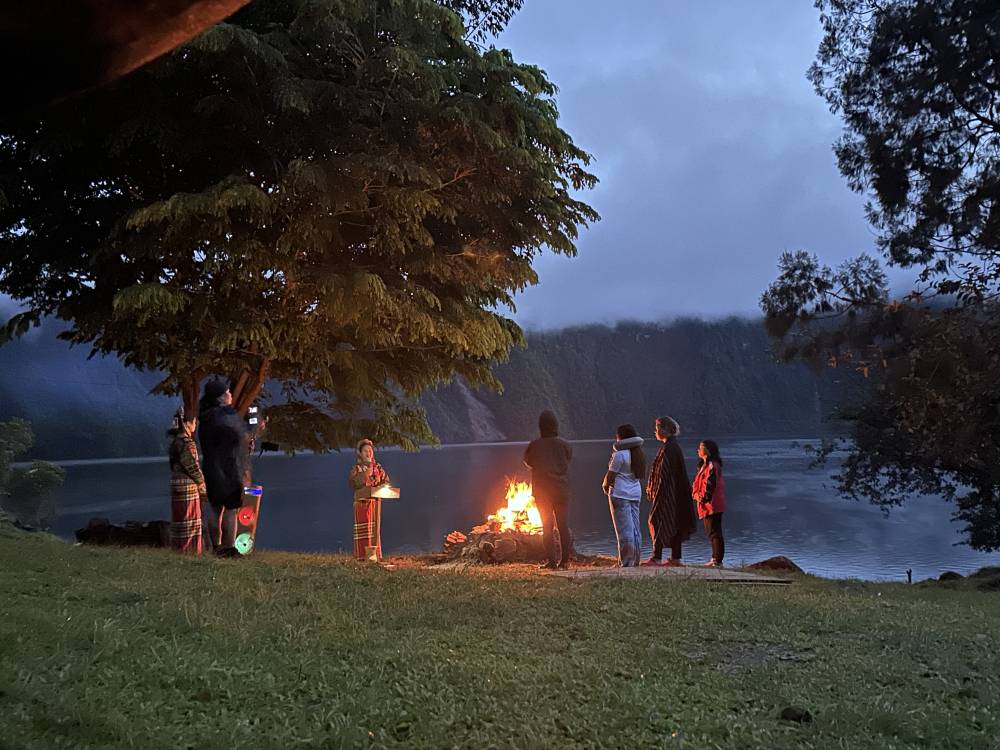
Climbing mountains has become a favorite way to connect with nature, offering stunning scenery and the pride of reaching the top. However, in the rush to ascend, we sometimes lose sight of the fact that these peaks are more than destinations—they are sacred and meaningful to the local communities.
The local stewards of Lake Holon take care to remind everyone of the sacredness of the place, enriching the climb with a cultural immersion that celebrates the traditions and beliefs of the Tboli people.
We climbed to Lake Holon as part of the seven-day Domestic Tourism Invitational Program Soccsksargen of the Tourism Promotions Board. We were among the last few who were able to visit one of South Cotabato’s most visited adventure destinations before it closed for its yearly breather.
Lake Holon, also known as Lake Maughan, is a serene crater lake nestled on Mt. Melibengoy, which is also called Mt. Parker, located in T’boli, South Cotabato. It has an elevation of 1,341 meters above sea level and spans 304 hectares. It is regarded as one of the cleanest inland water bodies in the Philippines. However, its deep waters remain a mystery.
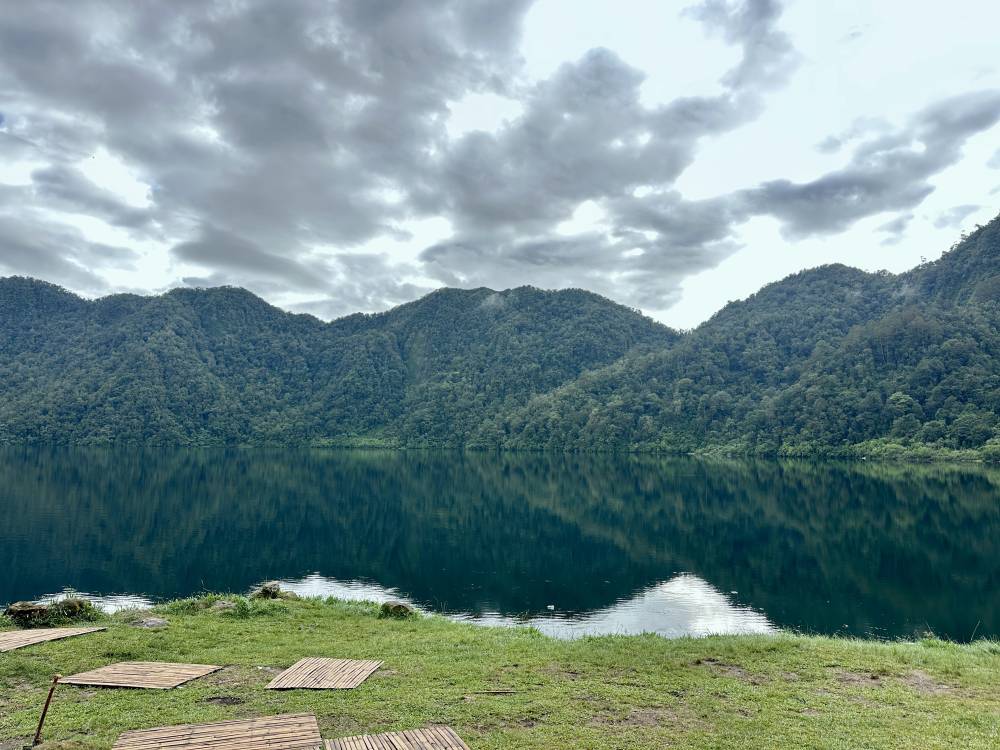
The mountain and the lake were named after Frank Parker and Russell Maughan, both United States military officers who died when their plane crashed while they were mapping the area in the 1930s. It became more popularly known as Lake Holon, which means “deep water” in T’boli, after locals decided to rename it following a disaster that occurred at the site.
4 stations
There are two trails to the lake: the Kule trail, which is more challenging, and the Salacafe trail, which is longer but easier. Our group of around 20, mostly composed of tour operators of varying ages and levels of mountain climbing experience, decided to take the latter.
Our journey began with a short briefing at the homestay, a traditional Tboli home called Guno or Gono Bong, which means “Big House,” located at the Salacafe jump-off point.
We passed through four stations. The first station was a T’boli community; the second, a tree-planting station; the third, the “kissing stone,” where legend says a kiss will help you find your partner; and the fourth, which offered a glimpse of the lake and the surrounding peaks. The trail from the jump-off to the fourth station was manageable for most of us, though some of the less experienced members of the group rode horses to this point.
From the fourth station, we faced a steep descent to the fifth station, which also served as the campsite.
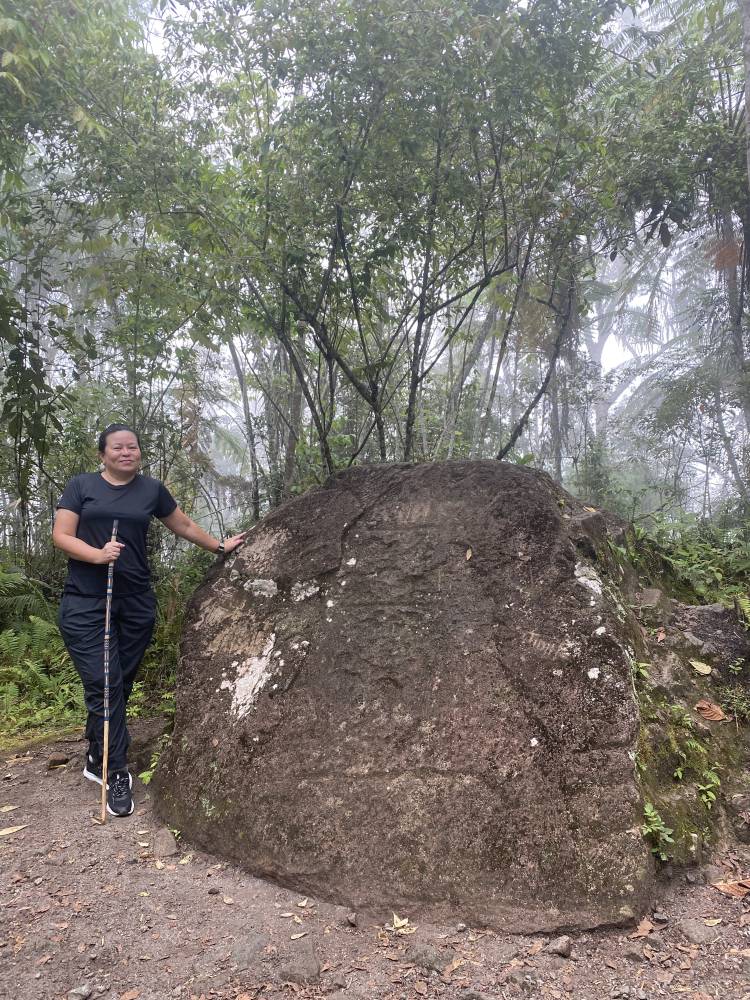
It took us around four hours to reach the campsite. Heavy rain started as soon as I arrived at the campsite, located right beside the lake, around 3 p.m.
We spent the afternoon soaking in the scenery and sharing stories with our fellow campers over warm cups of native coffee. As someone who loves the rain, I appreciated the moment, though it did limit our activities. We had planned a boat ride and other experiences, but the weather kept us from proceeding.
Our immersion into Tboli culture began at the jump-off point briefing. Beyond discussing the essentials for the hike, it introduced us to their vibrant traditions. After introducing themselves, our guides performed traditional dances. We even learned how to count in T’boli during a warm-up exercise, followed by a ritual and prayer to bless our climb.
As we trekked, our guides, led by Laiza, shared stories about the land. They pointed out various plants and trees along the trail, explaining how these inspired traditional Tboli designs and their importance in daily life.
Laiza stood out throughout the trip. She not only led the hike but also served as camp manager, ensuring everything ran smoothly. From preparing and serving meals to pitching tents and helping us settle in, she truly was Lake Holon’s all-around wonder.
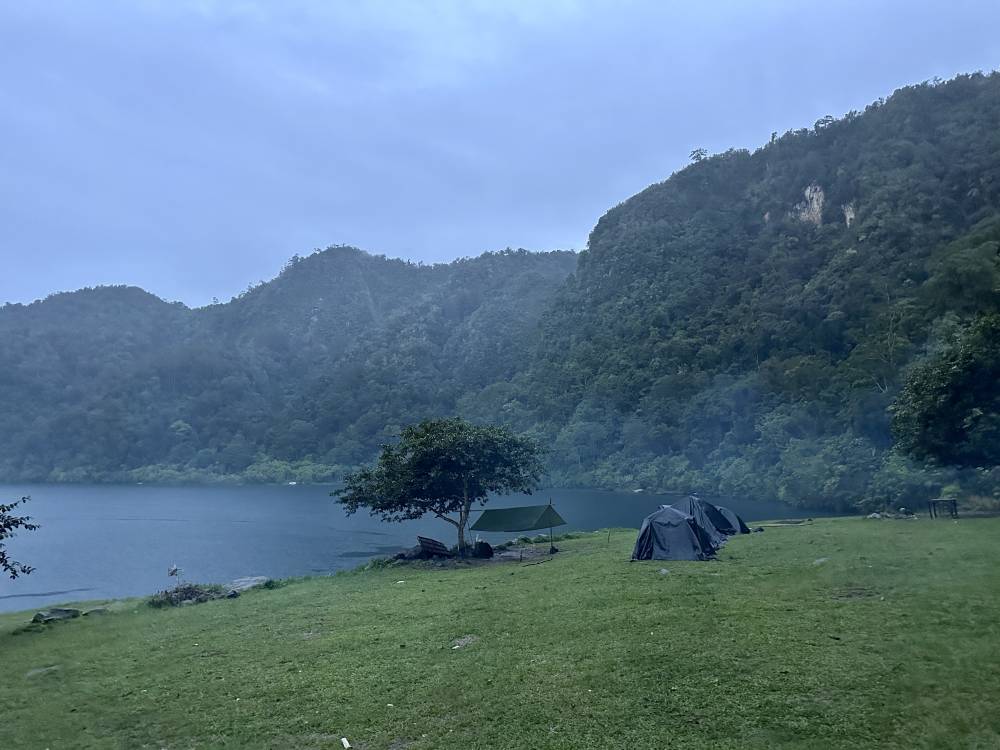
That evening, after the rain cleared, Laiza organized a cultural presentation by a bonfire. She took on multiple roles as host, speaker, performer, and even tech assistant. Among the stories she shared were those about the 15 guardians of Lake Holon, mystical figures represented by the surrounding mountains. These guardians protect the sacred lands and waters, each with a unique role.
Among them is Bulol Kolon, the most gracious and revered guardian, who grants permission to those entering the area. Bulol Fet, the enforcer, ensures respect by tying up those who act improperly. Bulol Hulo Kbo, the magistrate, judges those captured by Bulol Fet and punishes those with ill intentions. Meanwhile, Kutong Busaw, the chef, “cooks” those deemed unworthy, emphasizing the consequences of disrespecting this sacred space.
Welcomed guests
Between these stories, Laiza and the other guides entertained us with traditional dances. The evening ended with each of us sharing our reflections on the experience. As the fire dimmed, we felt transformed from visitors into welcomed guests, deeply connected to the T’boli culture and their profound bond with Lake Holon.
The following morning, I was awakened by the familiar sound of Christmas hymns sung in the T’boli language. I chose to stay in my tent, peeking out and listening to the melodic voices. After a few songs and prayers, Laiza invited all the birthday celebrants to join the bonfire. Since I had recently celebrated my birthday, I decided to join in. Afterward, they sang a welcome song for everyone.
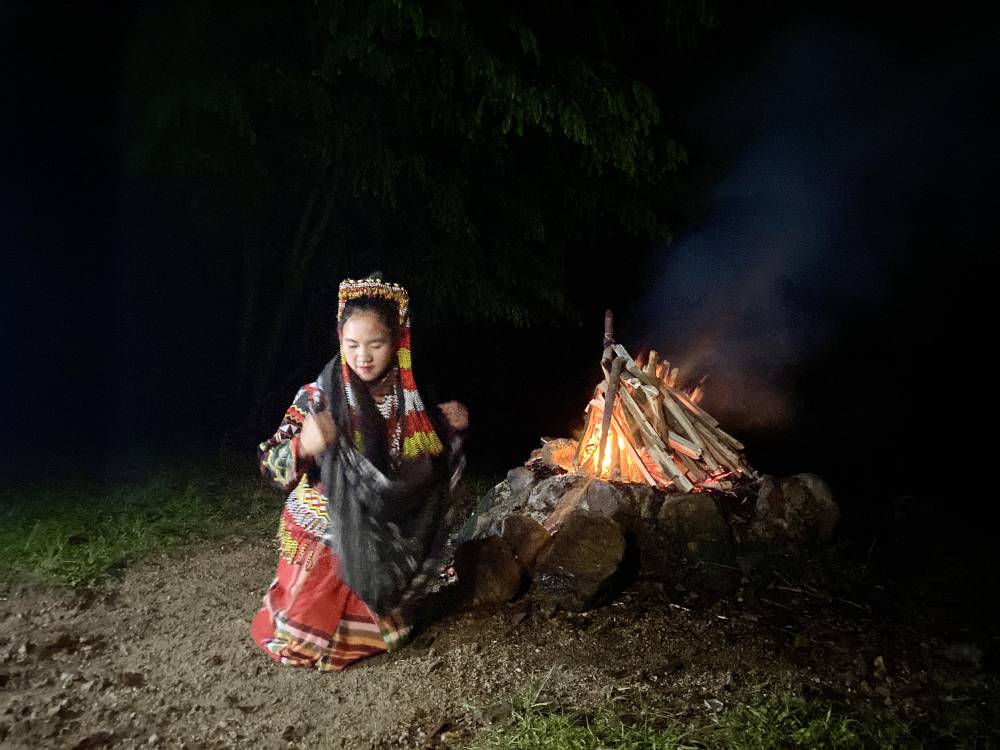
One of the highlights of our trek was the company of our dog guides. These loyal companions stayed with us throughout the journey. One of the dogs, affectionately called Brownie by the guides, was particularly attentive, often turning her head to ensure we were following her. At one point, some members of our group almost lost their way, but Brownie quickly stepped in to assist, keeping everyone on track. Brownie stayed with us at Lake Holon and even accompanied us back to the first station.
Dogs hold a special place in the history of Lake Holon. Laiza shared a story about how it was a dog that first led her community to the lake. Long ago, the T’boli people depended on hunting to supplement their food supply. During one hunting trip, a dog mysteriously disappeared and returned wet, raising curiosity. Intrigued, the hunters decided to follow the dog, which ultimately led them to the discovery of Lake Holon.
Laiza explained that the exact date of the discovery remains unknown, as none of the T’boli people at the time attended school due to fear of interactions with Christians.
Purposeful tourism
“You are not just tourists; you are tourists with a purpose.”
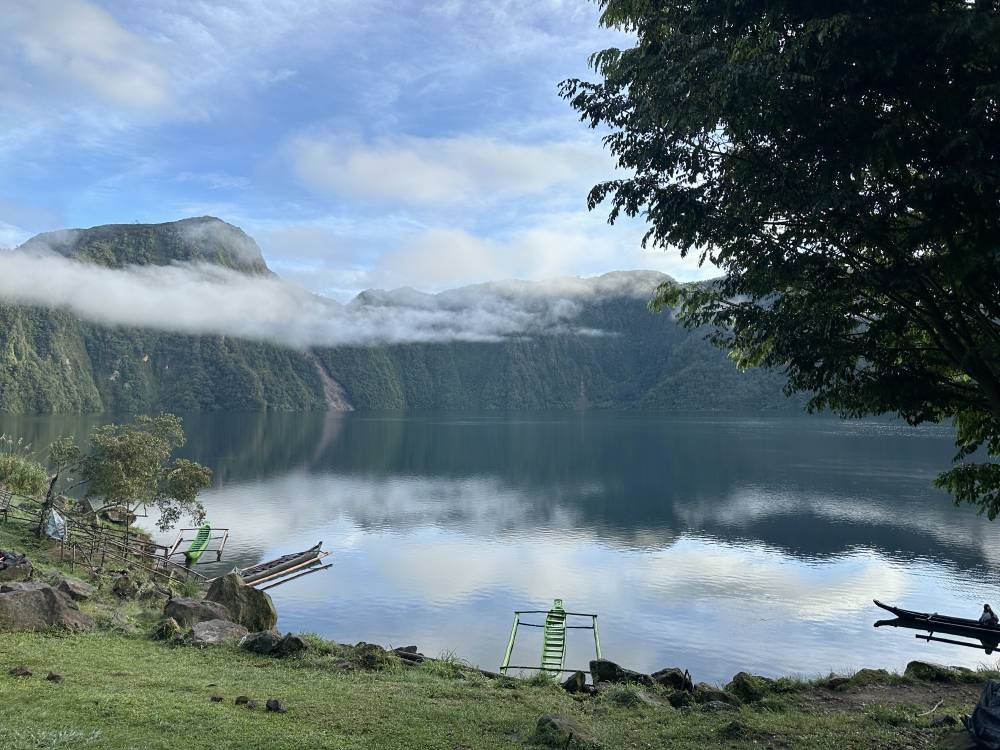
Laiza pointed out the deeper purpose behind our trip and the difference it makes. A portion of the fees we paid goes toward scholarships for college students from the community—scholars from the mountains whom we may never meet but whose futures are brighter because of initiatives like this.
Tourism at Lake Holon is deeply rooted in community empowerment. Every aspect of the experience is handled by locals, from the tour guide association to the porter association, banca operators, habal-habal drivers, and horseback riding providers. Each of these groups is made up of members of the T’boli community, with support from the local government unit. Tourism has become a vital source of income for many families, offering livelihoods where previously only abaca production and farming sustained the community.
This community-driven approach not only enriches the visitor experience but also ensures that the benefits of tourism directly uplift the people of Lake Holon.
Scaling Lake Holon is not merely about reaching heights; it is an enriching journey into the heart of T’boli heritage. While the beauty of the lake is undeniable, it is the stories and traditions woven into the journey that make it truly extraordinary.





















